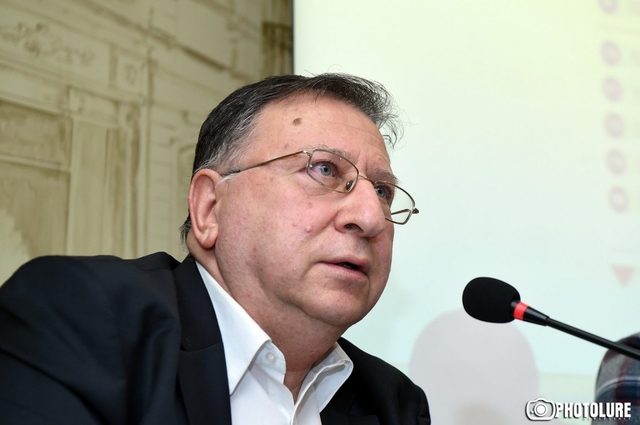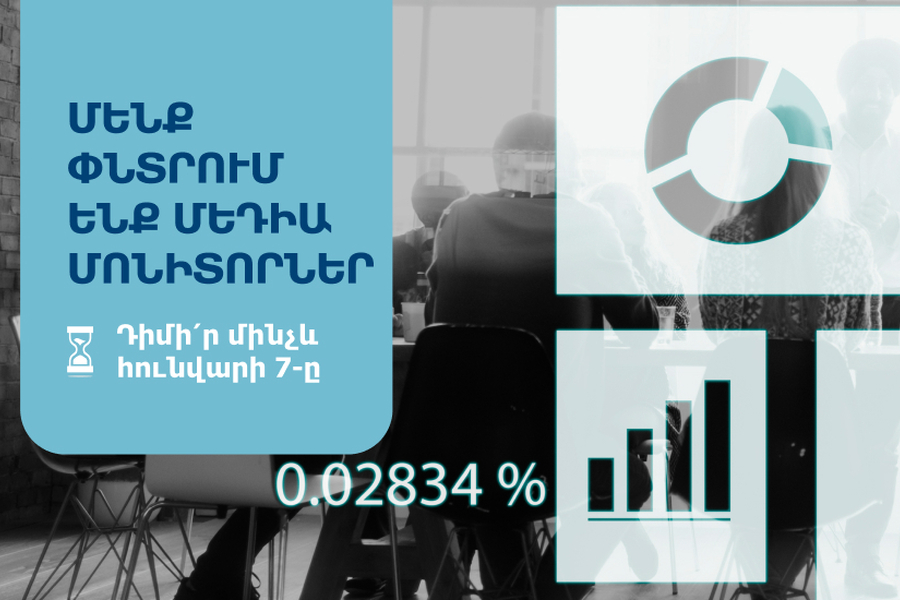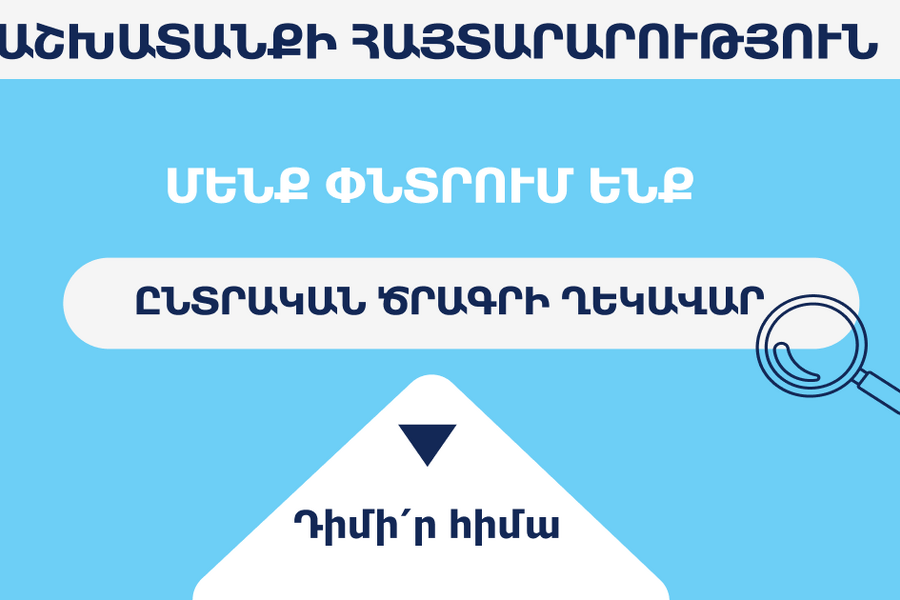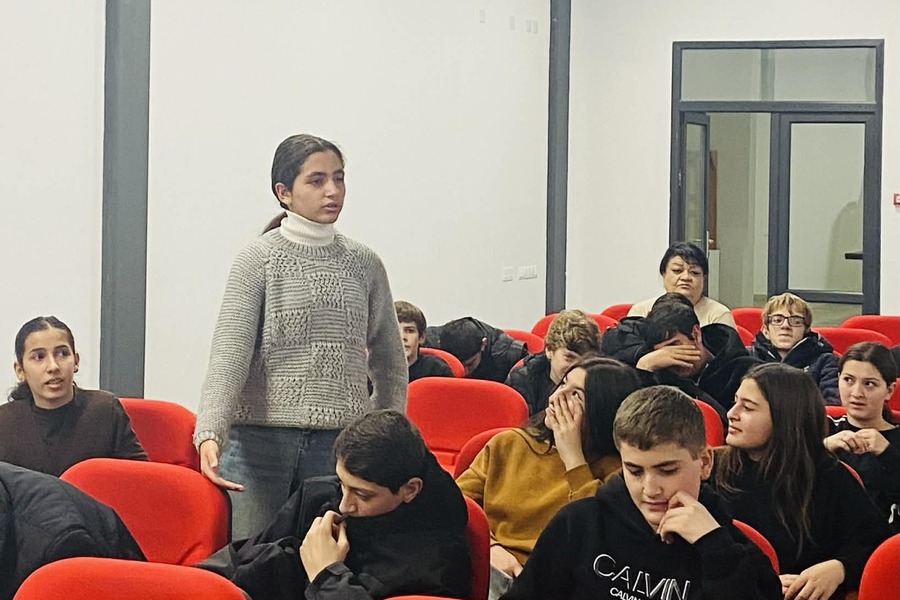Interview with V. Hoktanyan on Upcoming Snap Elections
Yerevanlur spoke with Varuzhan Hoktanyan about the upcoming elections and the latest amendments to the Electoral Code.
- .Mr. Hoktanyan, although the new amendments to the "Electoral Code '' were adopted in the parliament yesterday, the forthcoming snap elections will be held according to the already existing code, which abolished the rating electoral system. What do you think about this?
- The rating electoral system was first applied by the previous government in the elections held in April 2017; it was a rather unpleasant picture. In fact, it was a disguised majoritarian system that we witnessed from 1995 to 2017. Until 1995, it was purely majoritarian, and since the parliamentary elections of that year, it was already partial and the number of majoritarian seats in the National Assembly was reduced. That rating system very closely reminded the majoritarian one, with all its ugliness, so to speak, the luxury and misery of the majoritarian system. However, in 2018 the elections were held more normally with the same electoral system. In other words, a very interesting situation is created here, because if there is political will present, you can apply any system you want. For example, in the USA or Great Britain it is purely majoritarian,and it seems that there are no such problems. There were other issues in the last US presidential elections, but it was not related to the system.
Of course, this does not mean that I am in favor of the rating system, because the presence of political will, mathematically speaking, is a function with many variables. And it is not excluded that what happened in December 2018 under the influence of revolutionary enthusiasm, this time will not be like that and many questions will arise. From that point of view, maybe, taking into account our realities, it is better not to have a rating system really. During the 2018 elections, there was a rumor that it caused unhealthy competition within the ruling political force. The same thing happened in 2017, when, for example, in one of the constituencies, the story of the brother of RP member Artak Sargsyan (Artak of SAS) took place in connection with the recording, which many people linked to the rating system.
In general, I consider it correct to give up the rating system. It is another matter that there are other approaches to the proportional electoral system, for example, it could be that "Bright Armenia" offered an open list option; for instance, if the voter of Lori region voted for the given party, in addition to the authority of his territory, would also vote for the famous person of that party. I find it quite an interesting option, but it was refused. The biggest test of the current close proportional system will be on the day of elections. Let's see what it will produce.
- Do you consider it right to not apply the changes adopted yesterday in the upcoming elections, or could it have been applied anyway?
- First, let's wait and see, can all this be applied in the snap elections, if it takes place later. This haste seemed a little strange to me. The question that arises is if the changes were not going to be used in this election, why are they adopted now? It could be adopted, for example, in September. This is, simply put in Russian, "reasoning on the matter". Maybe it will turn out that the snap elections will not happen now but later.
As for the threshold, from 2019 to the beginning of 2020 I was indirectly involved in the discussions of the law on parties, at that time there was a more logical approach: the lowering of the threshold would refer to the coalitions as well. It is no secret that under any change is based on the calculations of the ruling political force. I understand the footnote that if there are many parties in the bloc, there will be many supporters, hence there should be a bigger percentage of them. But on the other hand, who said that if there are many parties, the number of supporters is larger? If that was the case, then all the parties would try to form alliances from seven, eight, ten parties. As far as I know, this time the "Civil Contract" will go alone. If we approach with that logic, they could join other parties in order to have a lot of supporters. What hinders a coalition? In other words, that argument is a bit dubious, because there is also the opposite logic. Two alliances were formed recently and, for example, the supporters of "Hayrenik" might not want to form a bloc with the RPA. I do not imagine how, for example, the supporters of the ANC, who are anti-Kocharyan, or the pro-Kocharyan people, who are anti-Levon, would accept it. That is, it is not so obvious.
- The new amendments tighten the responsibility for the distribution of money before the voting day, and doing charity, if the charitable organization bears the name of any candidate.
- In my opinion, doing charity during the pre-election campaign is a hidden type of electoral bribery. Charity organizations may not do charity during the election period. After all, elections do not take place every year, and there are no pre-election campaigns 365 days a year.
After Monday, if Nikol Pashinyan is not really elected as Prime Minister for the second time, and the process of preparing for the elections starts, it would be right to stop charity. Although there is another type of "charity" that is not official and is called "electoral bribery". If we consider electoral bribery illegal, it would be right to ban charity altogether for a while, because it is a more civilized version of electoral bribery, or vice versa, electoral bribery is a more targeted option of charity, when a specific person is given a specific charity for some purpose. Simply put, charity is the same electoral bribery, regardless of how it is called.
- Mr. Hoktanyan, a certain circle of election participants is already known. Taking into account the distribution of current forces, what kind of elections do you predict, what kind of competition will there be?
- This is a very difficult question. For sure, it will not be like it happened in December 2018, as there is no revolutionary euphoria now. If the CC gets the same number of votes, it will be very suspicious. The election participation rate is crucial ․ If 30% of the voters participate and 70% of them vote for the "Civil Contract", they will get 21% of the total votes, which will be very little. My main concern is that the participation will be passive, at least at the moment I see it.
I do not trust the media and social inquiries. For example, on the eve of the 2008 elections, they said that Levon Ter-Petrosyan had collected 3%. After that I realized that in our country sociology has become something equivalent to the second rather ancient profession. That is why I am a little skeptical. The best sociology will be the voting, if there will be no abuses of administrative resources, including the direct and hidden, older and newer resources. This is the second concern.
I think the passivity of the voters will be due to the psychological condition of the people, and the atmosphere that exists in the country now, when people look at the past to figure out whom to blame. We need to look to the future we are heading, how we see ourselves in the region, and what our future will be. After this defeat, it is more important how to get out of this situation. Of course, if we focus on "who is to be blamed", we will not find a way out. The main question lost in the mutual accusations is what will happen to Armenia in 2 years; what will happen to Artsakh in 5 years? Political forces must show what resources they have to fulfill the promises.






